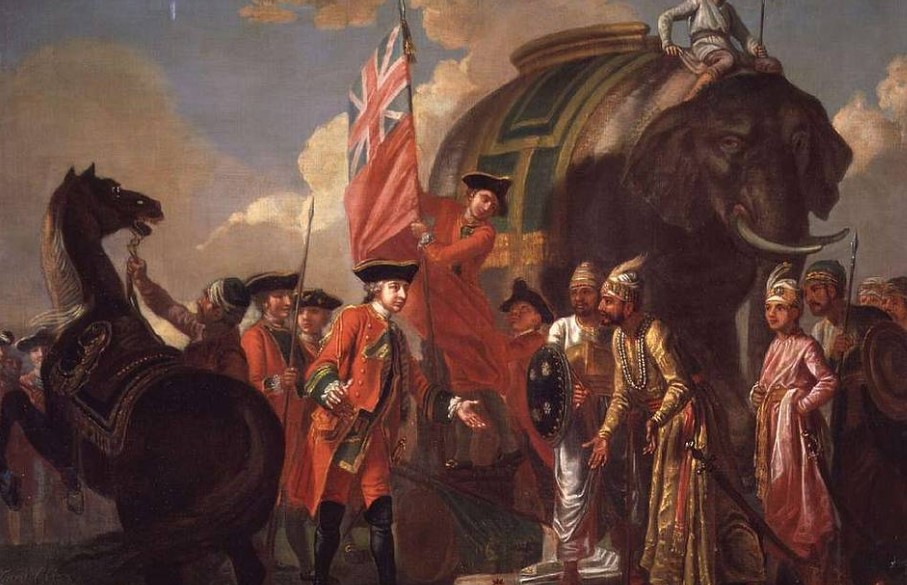
Modern History MCQs – 1 (Arrival of Europeans in India)
Most important multiple choice questions from the chapter – Arrival of Europeans in India MCQs.
Home » UPSC Study Materials » Prelims Express » Chapterwise MCQs » Modern History MCQs » Modern History MCQs – 10 (Surat Split and Lucknow Pact)
Surat Split and Lucknow Pact MCQs with answers and explanations for UPSC and Other examinations.
1. Which one of the following movements contributed to a split in the Indian National Congress ?
(a) Swadeshi Movement
(b) Quit India Movement
(c) Non-cooperation Movement
(d) Civil Disobedience Movement
Correct Answer – (a) Swadeshi Movement
2. Who among the following was not an extremist leader ?
(a) Bal Gangadhar Tilak
(b) Madan Lal
(c) Udham Singh
(d) G.K. Gokhale
Correct Answer – (d) G.K. Gokhale
3. Who among the following accused the Indian National Congress of practicing the politics of ‘Pray, Petition and Protest’ ?
(a) Lala Hardayal
(b) Bal Gangadhar Tilak
(c) Subhash Chandra Bose
(d) Sardar Bhagat Singh
Correct Answer – (b) Bal Gangadhar Tilak
4. Consider the following statements about Lala Lajpat Rai :
1. He was also known as ‘Sher-e-Punjab’ and ‘Punjab Kesari’.
2. He was among the moderate faction of the leaders of INC.
Which of the above statements is/are correct ?
(a) 1 only
(b) 2 only
(c) Both 1 & 2
(d) None of the above
Correct Answer – (a) 1 only
5. Consider the following statements about Bal Gangadhar Tilak :
1. He popularized the Ganesh Chaturthi festival in the Maharashtra region.
2. Book ‘Gita Rahasya’ was written by him.
Which of the above statements is/are correct ?
(a) 1 only
(b) 2 only
(c) Both 1 & 2
(d) None of the above
Correct Answer – (c) Both 1 & 2
6. Who among the following was called the ‘Father of Indian unrest’ by Valentine Chirol ?
(a) Lala Hardayal
(b) Bal Gangadhar Tilak
(c) Subhash Chandra Bose
(d) Sardar Bhagat Singh
Correct Answer – (b) Bal Gangadhar Tilak
7. Who among the following was the founder of All India Muslim League ?
(a) Sir Saiyed Ahmad Khan
(b) Sir Mohammad Iqbal
(c) Agha Khan
(d) Nawab Salimullah Khan
Correct Answer – (d) Nawab Salimullah Khan
8. The Indian Council Act of 1909 also known as Morley-Minto reforms provided for which among the following ?
(a) Dyarchy
(b) Communal Representation
(c) All India Federation
(d) Provincial autonomy
Correct Answer – (b) Communal Representation
9. Consider the following statements about the Lucknow Session of 1916 :
1. Moderates and Extremists factions of the INC united in this session.
2. Congress and All India Muslim League signed the historic Lucknow Pact.
Which of the above statements is/are correct ?
(a) 1 only
(b) 2 only
(c) Both 1 & 2
(d) None of the above
Correct Answer – (c) Both 1 & 2
10. Which among the following events occurred during the Lucknow session of Congress in 1916 ?
(a) Separate electorate demand of Muslim League was accepted
(b) Temporary merger of Muslim League and Congress occurred
(c) First Muslim person was elected as President of Congress.
(d) None of the above
Correct Answer – (a) Separate electorate demand of Muslim League was accepted
11. Consider the following statements about Annie Besant :
1. She started the Home Rule Movement in India.
2. She was the founder of the Theosophical Society.
Which of the above statements is/are correct ?
(a) 1 only
(b) 2 only
(c) Both 1 & 2
(d) None of the above
Correct Answer – (a) 1 only
More questions are coming soon. Join us on Whatsapp for latest updates: Join CivilsCracker on Whatsapp

Most important multiple choice questions from the chapter – Arrival of Europeans in India MCQs.

Most important multiple choice questions from the chapter – Battle of Plassey and Battle of Buxar MCQs.

Most important multiple choice questions from the chapter – Social and Religious Reform Movements MCQs.

Most important multiple choice questions from the chapter – Anglo Mysore Wars and Anglo Maratha Wars MCQs.

Most important multiple choice questions from the chapter – Governor Generals of India MCQs.

Most important multiple choice questions from the chapter – Revolt of 1857 MCQs.

Most important multiple choice questions from the chapter – Organizations before Indian National Congress MCQs.

Most important multiple choice questions from the chapter – Important Sessions of Indian National Congress MCQs.

Most important multiple choice questions from the chapter – Partition of Bengal and Swadeshi Movement MCQs.

Most important multiple choice questions from the chapter – Arrival of Gandhi and Jallianwala Bagh Massacre MCQs.
We are adding new Notes, Chapterwise MCQs, Quizzes, Previous Years Questions everyday
We are adding new Notes, Chapterwise MCQs, Quizzes, Previous Years Questions everyday